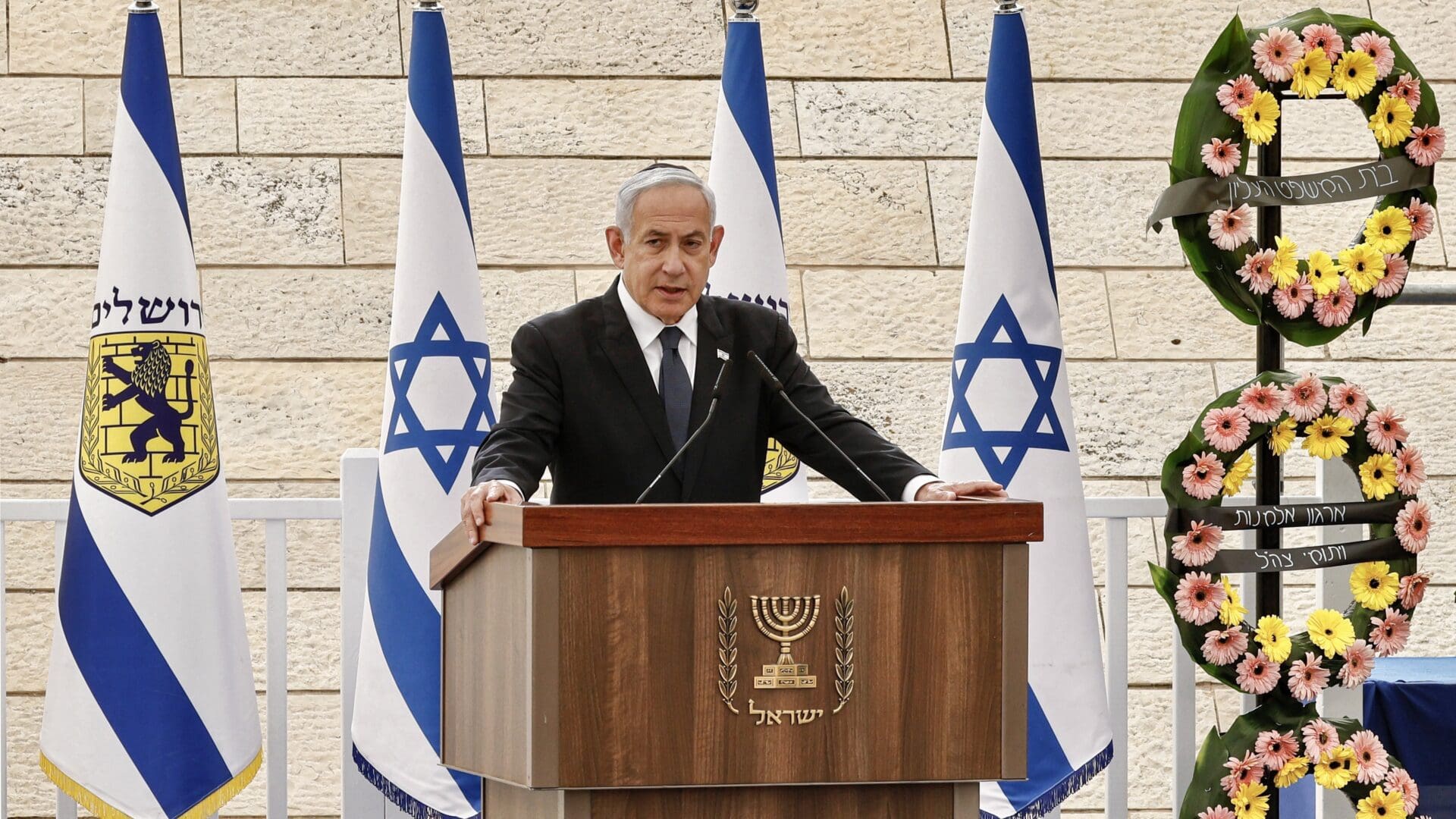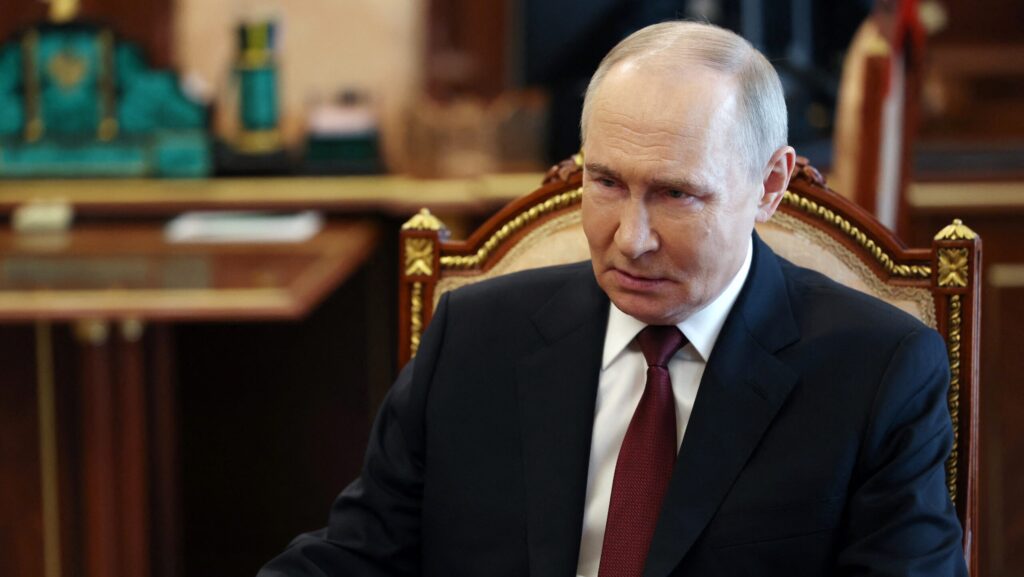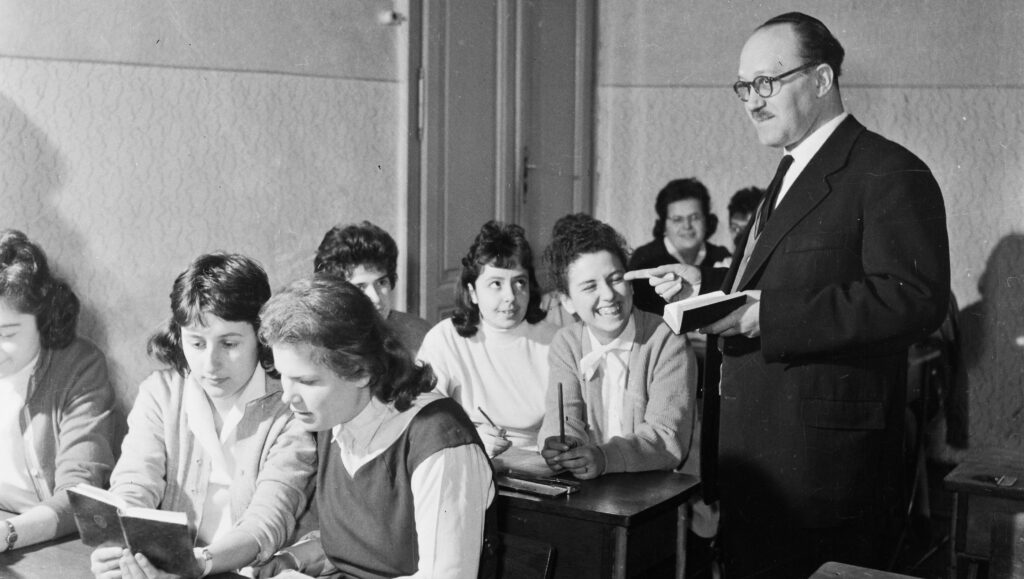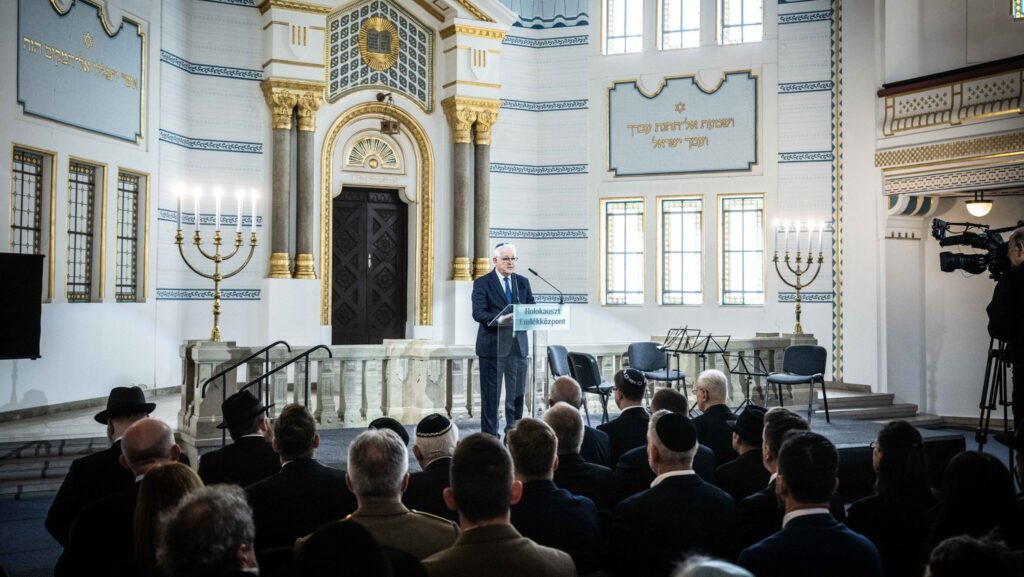In 1978, a 28-year-old Israeli appeared on a Boston television programme under the name Ben Nitay, where he said that the real core of the conflict is the Arab rejection of the state of Israel.’ The speaker looked exactly like a young Benjamin Netanyahu, and there’s a reason why: it was him. Netanyahu had studied at the Massachusetts Institute of Technology and Harvard University (both located in the Boston area), and during the filming of the show, he was working at the international business consulting firm Boston Consulting Group. He used the name Nitay in America because, as he explained, the Americans had trouble pronouncing Netanyahu. When asked if he had changed his name because he wanted to stay in America, he said no: he came from an old Zionist family, and never wanted to live outside of Israel.
Israel’s current Prime Minister was born in Tel Aviv in 1949. His father was the Polish Jewish historian Benzion Netanyahu, who at one time also served as secretary to the father of the Zionist right, Vladimir Ze’ev Jabotinsky. His father was teaching in America in the 1960s, so Netanyahu graduated from a Pennsylvania high school and is practically a native English speaker. Later, he did his compulsory service in the Israeli army, including fighting in the Yom Kippur War.
In 1976, he lost his brother, Yonathan ‘Yoni’ Netanyahu, an Israeli army officer who was the commander of the rescue operation during the famous Entebbe hostage crisis,
when a flight from Israel to France was hijacked by terrorists. The operation was successful, with the commander being the only casualty.
After returning to Israel, he joined Likud, became a member of parliament (Knesset) and in 1993 emerged as the leader of the opposition. On 19 October 1994, the worst suicide bombing ever shook Israel: a Hamas member blew himself up on a crowded bus near the central Dizengoff Square of Tel Aviv, killing 22 people. Netanyahu, who was staying nearby at the Likud headquarters named after Jabotinsky in Metsudat Ze’ev joined the angry mob berating the government around the burnt-out bus.
The next day, his political opponents and media pundits accused him of ‘dancing on blood’, but most Israelis remembered the gruesome footage of torn bodies and the driver lying dead at the wheel. People realized that they were no longer safe even in the heart of cosmopolitan Israel, according to his biographer, the otherwise strongly liberal Anshel Pfeffer. According to opinion polls following the ‘no. 5 bus assassination’, Netanyahu overtook incumbent Yitzhak Rabin, who was shot the following year. In the context of the fiasco of October this year, it should be noted that Shin Bet at the time had been watching Rabin’s assassin, but they concluded that he was not a threat…
Although a strong part of Netanyahu’s image is ’Mr Security’, and Time magazine’s May 2012 cover even named him ‘King Bibi’, it would be far from fair to say that Netanyahu’s career has not seen a few fiascos. In September 1997, on Netanyahu’s orders, Mossad attempted to assassinate Hamas leader Khaled Mashal in Amman, Jordan. The operation failed, Mashal survived the poisoning, and two agents were even arrested by Jordanian police. The case was particularly humiliating for Netanyahu, as the Israelis had to hand over the antidote to the Hamas leader in a Jordanian hospital and dozens of Palestinian detainees were released as an act of atonement. The Economist, Netanyahu’s favourite newspaper, wrote an article about Netanyahu a year after he took over as prime minister under the headline ‘Israel’s serial bungler’.
But what is it that determines the Israeli PM’s views on Gaza and terrorism? In 1995, he wrote a book on terrorism. The book weighs counter-terrorism measures against the issue of civil liberties, but also discusses jihadism and nuclear dangers. Looking at the date of the book, it is interesting to see that he does not simply see terrorism as a security challenge, but as an element of a civilizational conflict. He clearly situates Jewish culture and Israel’s place ‘in the West’, which is both a break with Israeli tradition—which traditionally sees Israel as a mediator between East and West—yet somewhat in keeping with Jabotinsky’s ‘Western’ self-image. (Jabotinsky had more of a love-hate relationship with British culture, while Netanyahu is a fan of America).
Netanyahu holds that there is no terrorism without the support of sovereign states: they train, arm, finance and indoctrinate individuals open to terrorism. He names Iran, Iraq, Syria, Afghanistan and the Palestinian territories as such dangerous countries, but he mentions Lebanon, Yemen and (perhaps ironically today) Saudi Arabia in his book. He sees the main danger in the Palestinian context in the indoctrination of children: teaching children to kill negates the need for intercontinental missiles to be the weapons of Islamism, because they will be the delivery system, he wrote. Despite the fact that the biggest security fiasco in Israel’s history is now attributed to him,
28 years earlier he was scourging the West for ‘pressing the collective snooze button’ on Islamic terrorism.
One of Netanyahu’s main tenets is that terror should not be rewarded. Any move that legitimizes terrorists, he said, will only lead to more terror, because it shows that the tool works. He saw as one of the main threats the acquisition of nuclear and biological weapons by terrorists—on 7 October this year, however, Hamas showed what they could do with knives and firearms only. Finally, Netanyahu proposed the creation of an international coalition against countries that support terrorism.
Terrorism should not be rewarded—this is a very important point, but it is interesting that Netanyahu has had a contradictory attitude to this throughout his career. In 2005, when Ariel Sharon’s government withdrew from Gaza, Netanyahu opposed it as Finance Minister and offered his resignation in protest. He told his fellow representatives in the Knesset: ‘We must stop this evil…Don’t give the Palestinians weapons, don’t give them rockets, don’t give them ports, don’t give them a base for terrorism.’
A year after his speech, Hamas kidnapped Israeli soldier Gilad Shalit.
In 2011, Netanyahu ordered the release of over a thousand assassins, terrorists and murderers in exchange for the kidnapped soldier.
The deal was opposed by several members of the Israeli government, including Avigdor Liberman, who almost joined the current unity government, and the now inactive Uzi Landau. Landau argued that the deal was a ‘huge success’ for terrorism and would encourage Hamas to kidnap more and more Israelis. But they represented the minority and were voted down.
It is also worth examining Netanyahu’s attitude towards Arabs. According to researcher Joshua Sinai, Netanyahu, for his part, tends to view Israeli Arabs as a security threat, and during the 2015 elections he tried to motivate his base by claiming that Israeli Arabs would ’turn out in droves’ to vote. In addition, Israeli Arabs interpreted the Nation State Law passed by Netanyahu’s government in July 2018 not only as a downgrading of their status as equal citizens, but also as a downgrading of Arabic from equal status with Hebrew to ‘special status’.
Netanyahu has therefore been branded a ‘racist’ by much of the international press,
elegantly overlooking the fact that Netanyahu has spent 15 billion shekels to improve the situation of the Arab community in Israel.
A new Arab middle class has emerged, sometimes at odds with the anti-Zionist Arab members of the Knesset—much to Netanyahu’s delight. The investment is, of course, in Israel’s interest, too, with Arabs making up some 21 per cent of the Israeli population and 15 per cent of university students, and the numbers are growing.
At one point, an adviser to Netanyahu told me that ‘Bibi’ is only interested in two things: the economy and Iran. According to Sinai, it is precisely the focus on Iran that has distracted Netanyahu from other security challenges (and the author identifies as many as 12 such issues in Israel!). One of these challenges was Gaza and Hamas. It is interesting to see that not only did Netanyahu not take Hamas seriously, but he was also expressly afraid of a land incursion.
The change came on 12 June 2014, when three Israeli teenagers were kidnapped and then murdered by Hamas members in the West Bank. Israel responded with widespread arrests, to which Hamas reacted by firing rockets on a daily basis from Gaza. In response, Israel announced a Gaza offensive. Throughout the operation, Netanyahu resisted the more militant members of the IDF General Staff who called for an extensive invasion. He even fired Deputy Defence Minister Danny Danon for publicly criticizing him for his restraint. The reason why Netanyahu was cautious was that he was worried that the IDF would be mired in a high-casualty conflict in Gaza’s system of narrow alleys and tunnels, Pfeffer writes. Even after finally authorizing a ground campaign on 17 July, he ordered that incursions be limited to a few kilometres from the border. Never before had Netanyahu as a leader come so close to war—but as we know, he declared war in October this year.
Israeli intelligence has known for years that Hamas was digging tunnels under the border, but Netanyahu’s cabinet has only superficially discussed this threat with the Israeli public. The IDF has devoted few resources to tunnels, and its units deployed to Gaza in 2014 were untrained and lacked the proper equipment for underground warfare. In any case, in 2014, tens of thousands of buildings were destroyed in Gaza, 2,100 Gazans were killed (half of them reportedly civilians) and 73 Israelis fell. But Netanyahu’s attention ‘quickly turned elsewhere’.
His conduct during the Gaza conflict highlighted two contradictory traits in his leadership:
a profound reluctance to address the burning issues on the Palestinian front and an extreme aversion to risk and large-scale military adventures,
his biographer suggests.
The question is: with these experiences behind him, how does Netanyahu plan to lead Israel to victory in 2023? A hundred years from now, will historians write about ‘King Bibi’ or ‘Israel’s serial bungler’—or will they settle for something in between?








